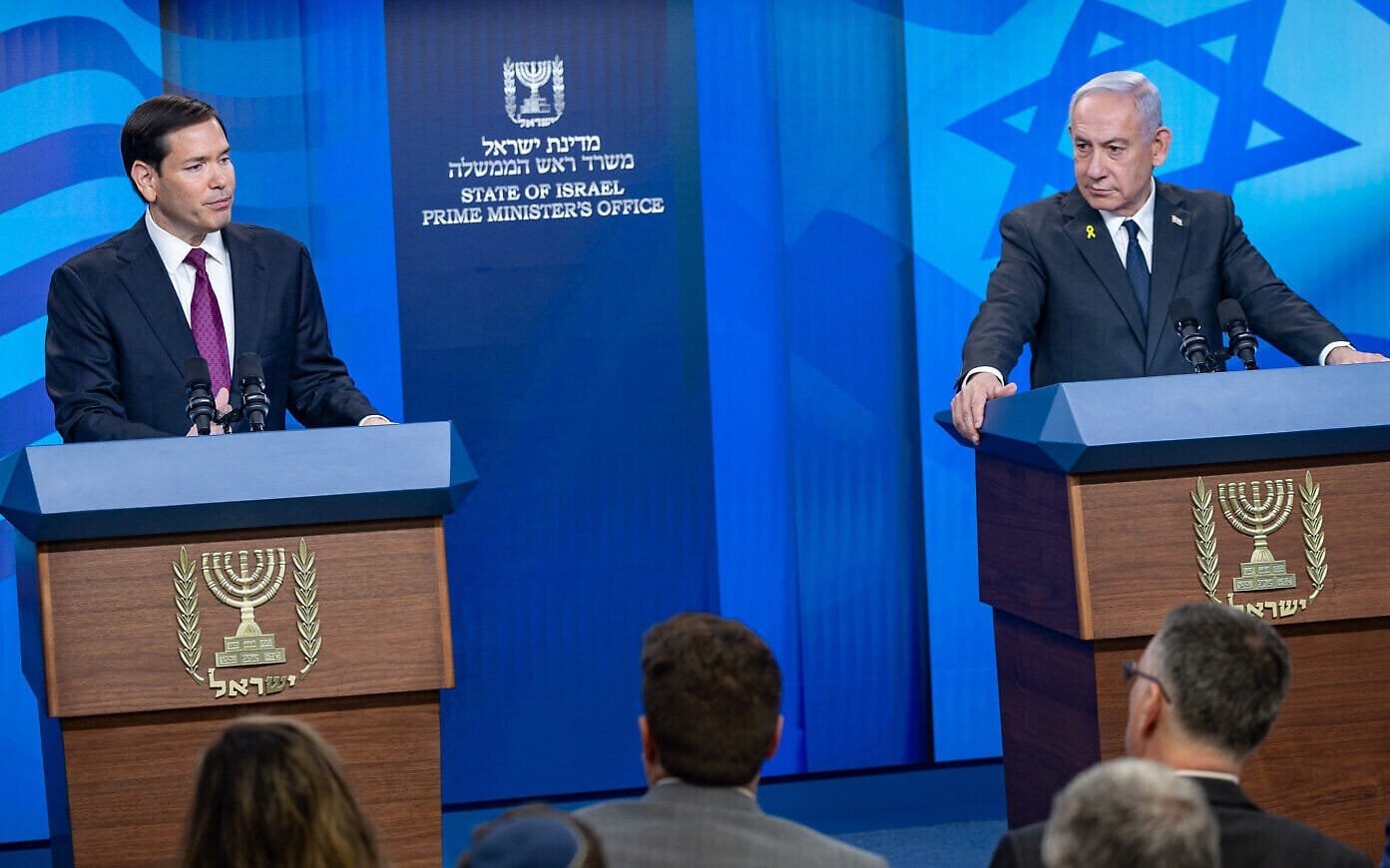U.S. Secretary of State Marco Rubio, during a joint press conference with Israeli Prime Minister Benjamin Netanyahu in Jerusalem on September 15, vowed that Washington would continue to apply “maximum pressure” on Iran to stop its nuclear program from advancing. Rubio said this approach includes sustained economic sanctions and diplomatic containment, arguing that a nuclear-capable Iran under its current regime poses “an unacceptable risk, not just for Israel, not just for the United States, but for the world.”
Rubio characterized a nuclear-armed Iran ruled by its clerical leadership, equipped both with weapons-grade fissile material and long-range missile delivery systems, as an “unacceptable risk.” Netanyahu, for his part, welcomed Rubio’s reaffirmation of U.S. support, especially following Israeli military strikes on Iranian nuclear and conventional military sites earlier in the year. The Israeli prime minister stressed that the U.S. action signals that America stands with its allies and is committed to defending its interests.
Iranian officials have long claimed their nuclear program is peaceful, but the U.S. and Israel dispute this, pointing also to Iran’s missile development and regional influence through proxy groups. Rubio’s visit comes amid regional volatility —including backlash over recent Israeli strikes in Qatar that have complicated ceasefire efforts in the broader Gaza conflict—and as U.S. diplomacy seeks to align both military strategy and international diplomatic pressure against Iran.





